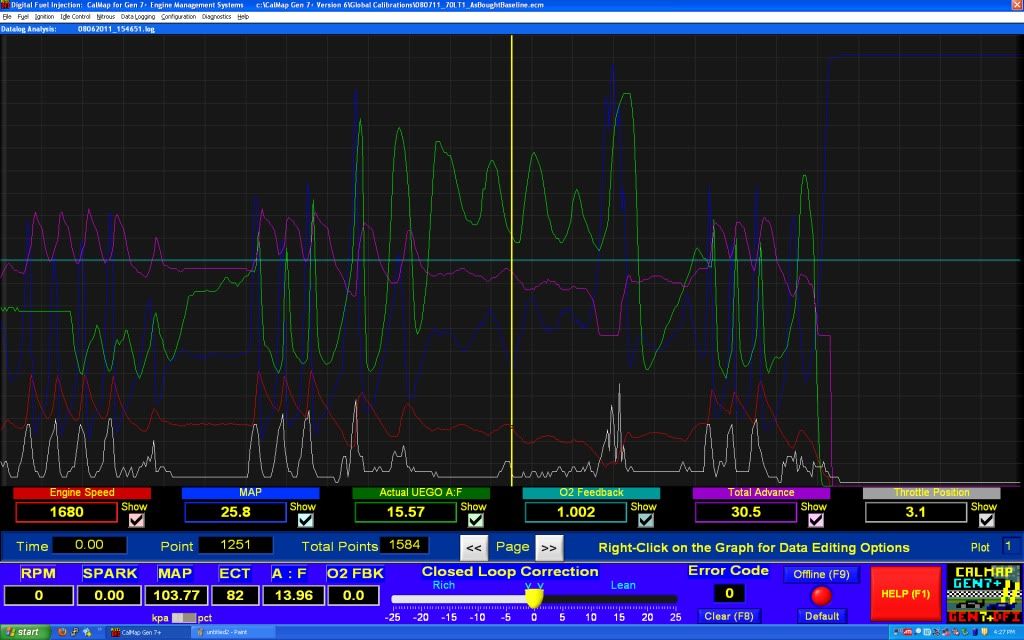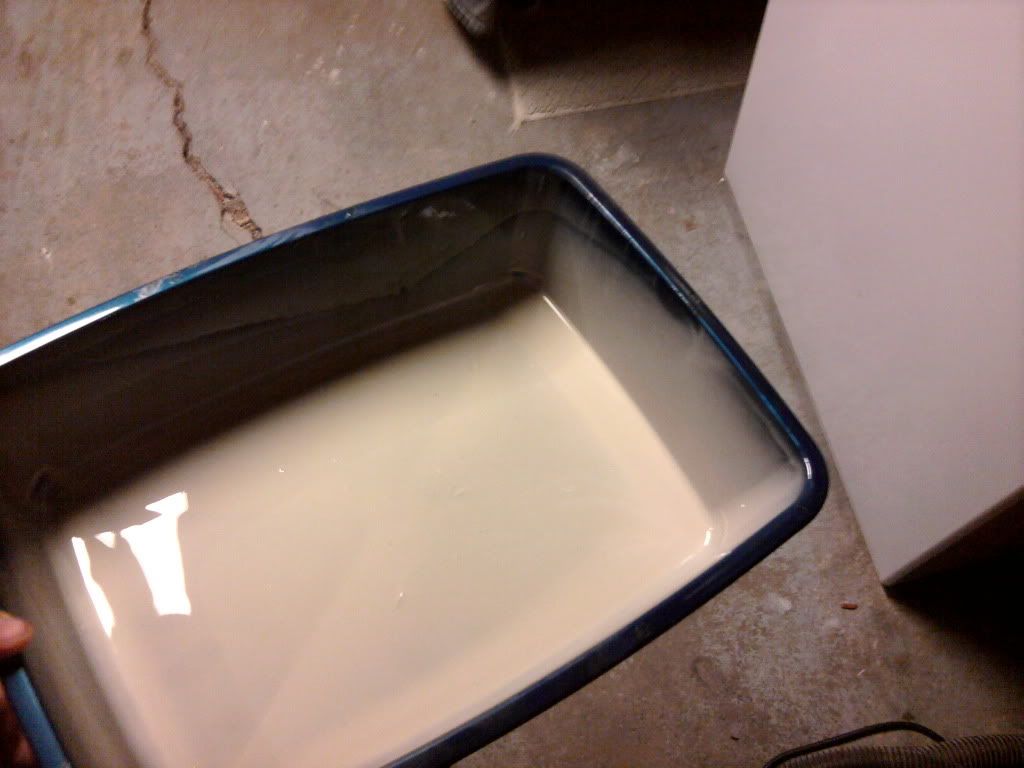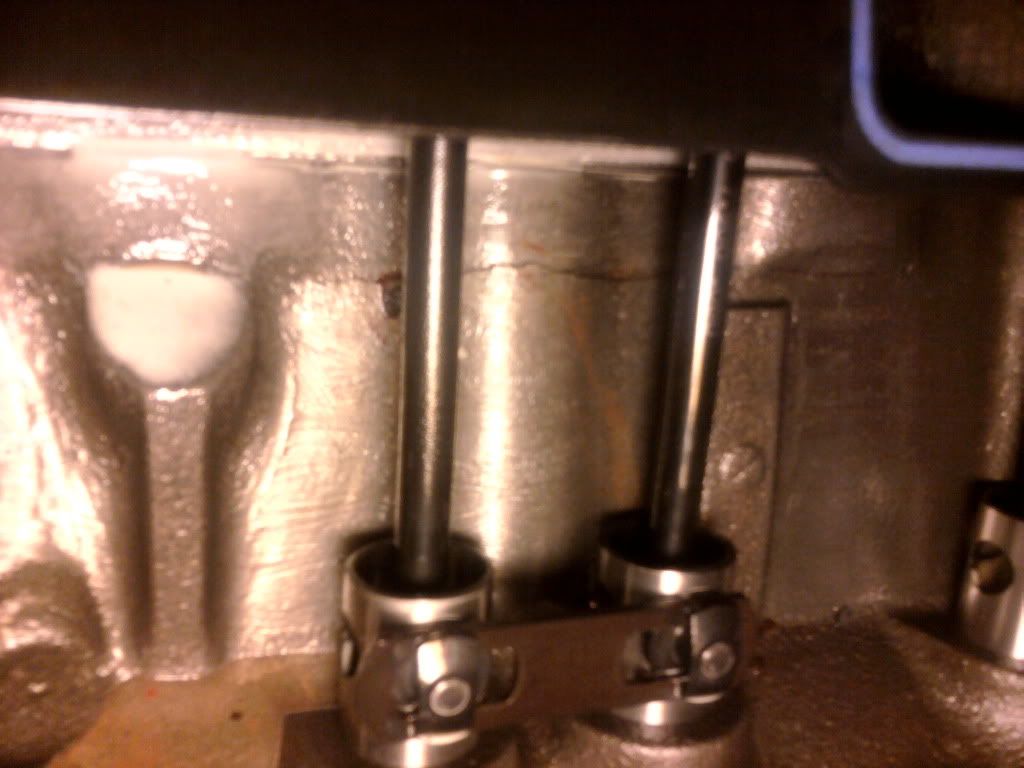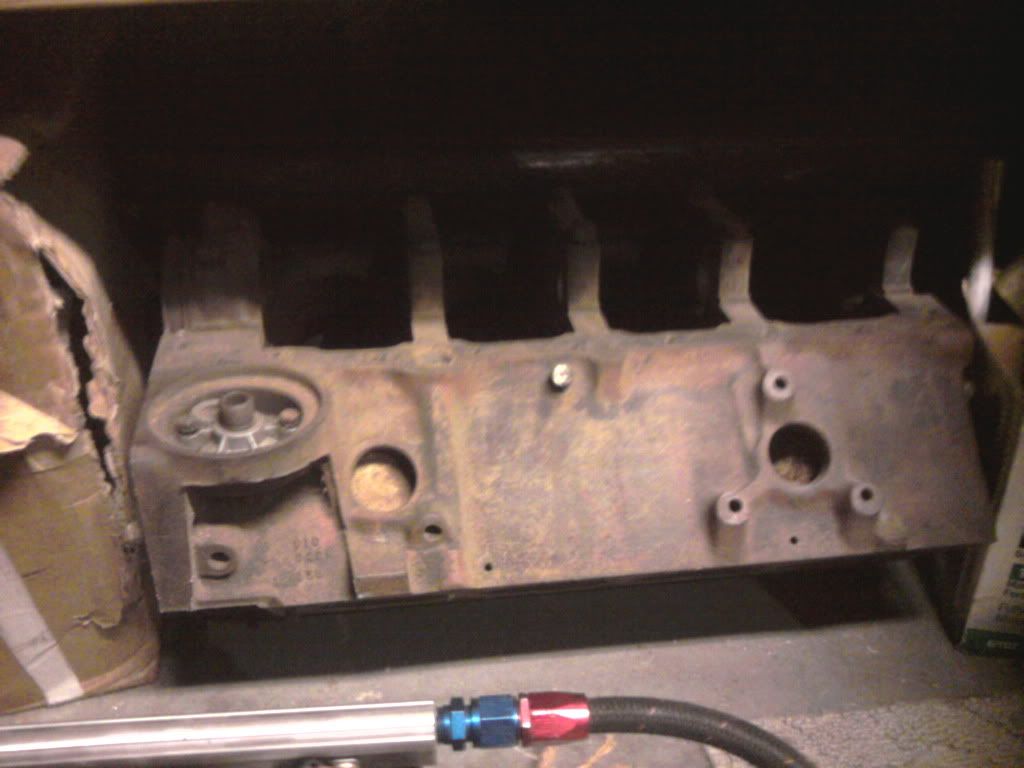LiveandLetDrive
Member
- Joined
- Apr 7, 2010
- Messages
- 22
- Location
- San Jose, CA
- Corvette
- 1970 LT-1 Resto-Mod, 1977 L48 (parting out)
Some specs:
383 based on 350 LT-1 block, Al heads.
Comp Cams 286XR solid roller, 1.5:1 roller rockers
Accel 7 DFI, sequential MPFI, dual-synch distr.
So here's the story to date: The car started to run extremely rough and did not want to stay running. Eventually the valve covers were pulled and #6 intake pushrod was broken (the rocker-end tip had actually been bashed down about 1/2".) I thought it must have snuck past QC with improper hardness. No wear on the sides of any pushrods. That valve stem tip (and to a lesser degree a couple others) were a bit flattened out as if they'd been slapped hard. I figured I had probably let it go too long without adjustment as it only has a few thousand on it since its build.
So, I replace all 16 pushrods (correct length) and the damaged roller rocker, reassemble, ... and the poor running is essentially the same as before. I did compression and leakdown tests, all cylinders (most notably #6) are stellar. Replaced all plugs, wires are newish and look good.
[[Intermission for several months sitting and not running, shame on me...]]
Today, determined to finally find the problem, I go looking for a bent valve and take the springs off. Nope, travels smoothly. Rotates easily at all points of travel including closed. This was my best guess as being "downstream" in the valvetrain from the source of force it best explained the busted pushrod. Ok, so my final theory is wiped cam or busted lifter. Took off the guide plate and pulled the pair of lifters out through the head ... Nope, lifter looks practically new, cam lobe the same. As far as I can tell the valvetrain is in perfect health.



At this point I am out of good ideas and moving on to bad ones. As much as House MD has taught me not to accept coincidence as a diagnosis, I'm wondering if the running problem may be unrelated to the mechanical failure.
I have not changed anything in the EFI setup to date but my next plan at this point is to put everything back together and hook up the new work laptop and see what I can see. No idea how to use it but presumably it should put out some useful OBD2-esque codes? Any better ideas anyone?

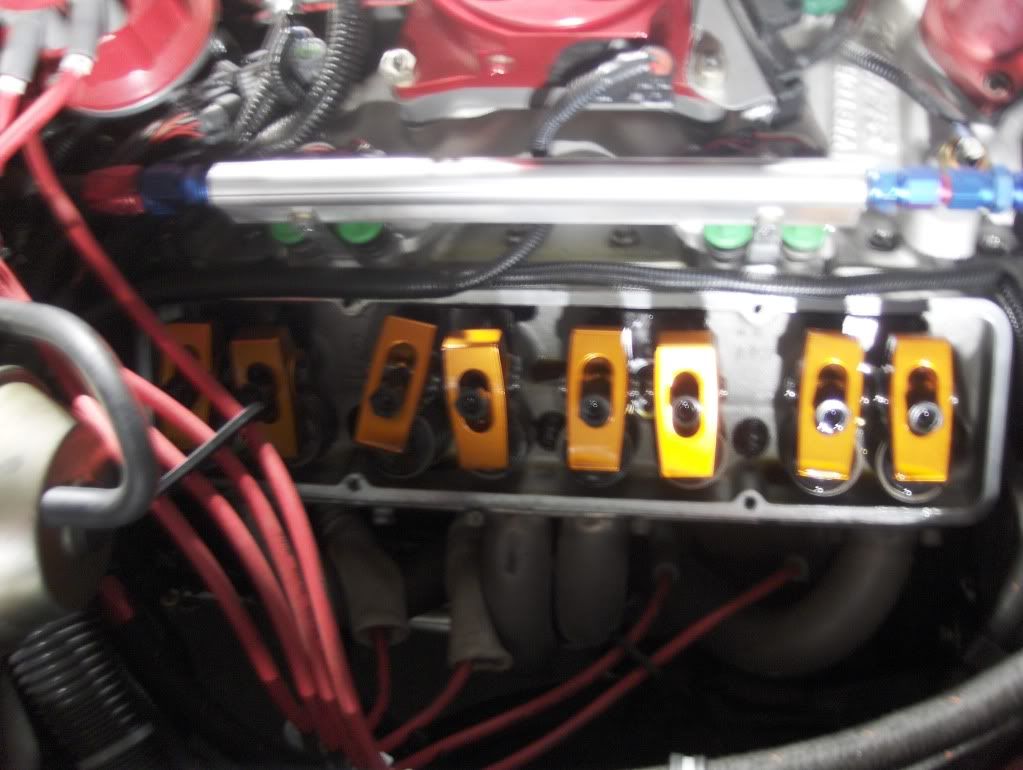
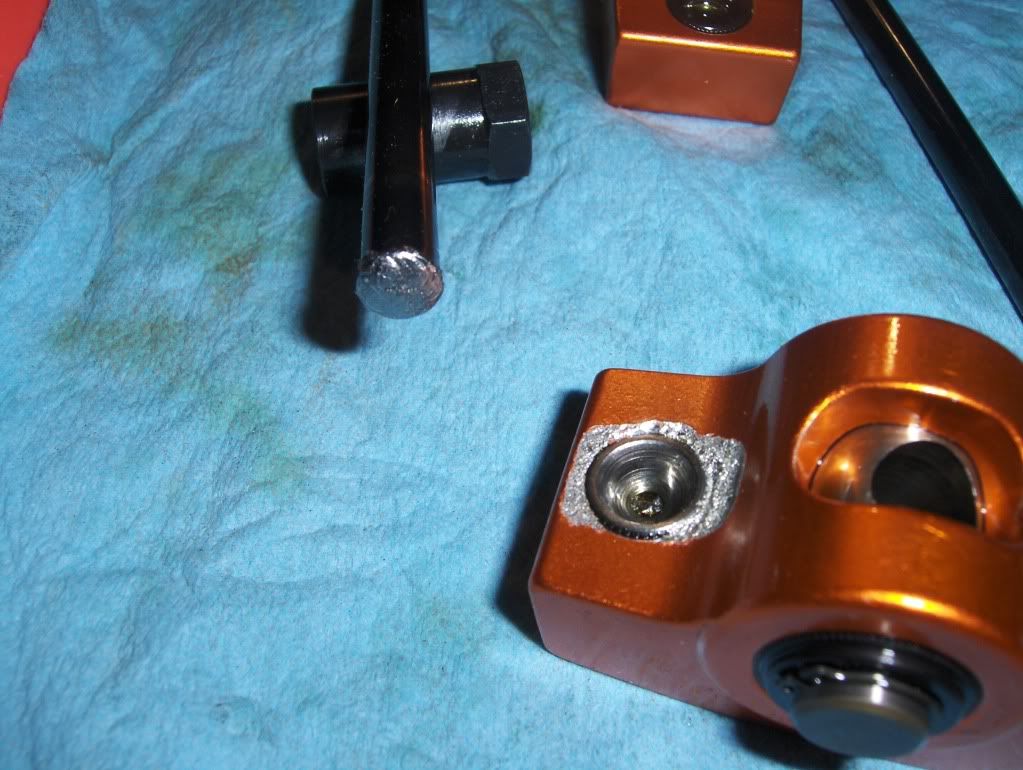
383 based on 350 LT-1 block, Al heads.
Comp Cams 286XR solid roller, 1.5:1 roller rockers
Accel 7 DFI, sequential MPFI, dual-synch distr.
So here's the story to date: The car started to run extremely rough and did not want to stay running. Eventually the valve covers were pulled and #6 intake pushrod was broken (the rocker-end tip had actually been bashed down about 1/2".) I thought it must have snuck past QC with improper hardness. No wear on the sides of any pushrods. That valve stem tip (and to a lesser degree a couple others) were a bit flattened out as if they'd been slapped hard. I figured I had probably let it go too long without adjustment as it only has a few thousand on it since its build.
So, I replace all 16 pushrods (correct length) and the damaged roller rocker, reassemble, ... and the poor running is essentially the same as before. I did compression and leakdown tests, all cylinders (most notably #6) are stellar. Replaced all plugs, wires are newish and look good.
[[Intermission for several months sitting and not running, shame on me...]]
Today, determined to finally find the problem, I go looking for a bent valve and take the springs off. Nope, travels smoothly. Rotates easily at all points of travel including closed. This was my best guess as being "downstream" in the valvetrain from the source of force it best explained the busted pushrod. Ok, so my final theory is wiped cam or busted lifter. Took off the guide plate and pulled the pair of lifters out through the head ... Nope, lifter looks practically new, cam lobe the same. As far as I can tell the valvetrain is in perfect health.



At this point I am out of good ideas and moving on to bad ones. As much as House MD has taught me not to accept coincidence as a diagnosis, I'm wondering if the running problem may be unrelated to the mechanical failure.
I have not changed anything in the EFI setup to date but my next plan at this point is to put everything back together and hook up the new work laptop and see what I can see. No idea how to use it but presumably it should put out some useful OBD2-esque codes? Any better ideas anyone?




